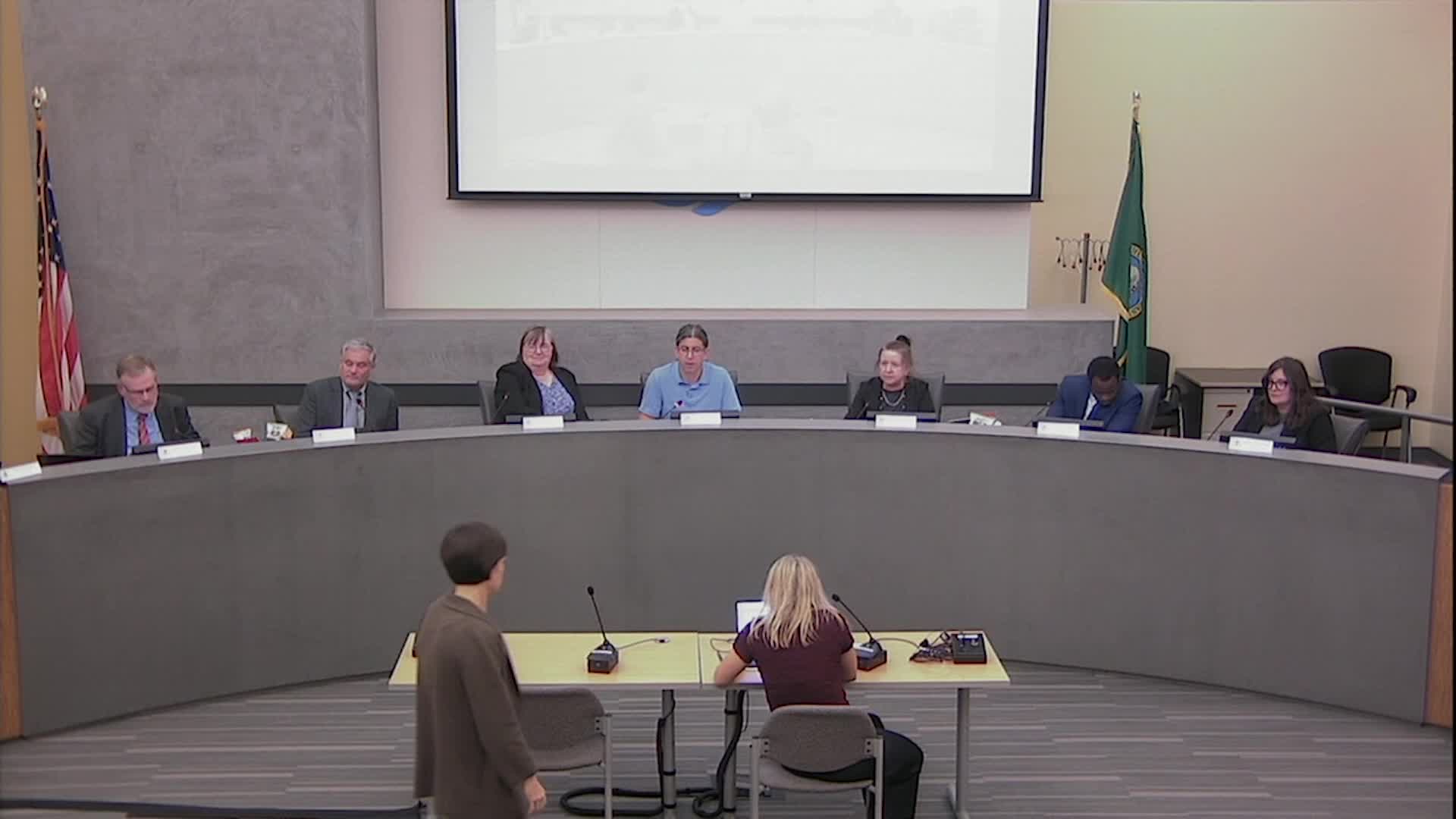Shoreline studies protected bike lanes for North 200th Street; one-way option favored at ~$390,000
Get AI-powered insights, summaries, and transcripts
Subscribe
Summary
Shoreline staff presented conceptual designs Oct. 13 for protected bike lanes on North 200th Street to bridge a gap on the Interurban Trail; staff recommended a one-way protected lane as the lower-cost, more intuitive option, with a conceptual cost estimate of about $390,000.
Shoreline city staff presented options Oct. 13 for adding protected bike lanes on North 200th Street between Ashworth Avenue North and Meridian Avenue North to close a comfort-and-continuity gap in the Interurban Trail.
Kendra Dodinski, the city traffic engineer, said staff prepared two build concepts plus a no-build baseline. "Trails are meant to be comfortable for bicyclists of all ages and abilities," Dodinski said. Her presentation identified a one-way protected-bike-lane option (a roughly 6-foot bike lane with horizontal buffer and vertical pylons) and a two-way option that would place contraflow bicycle travel on the north side of the street. Dodinski said the one-way option is technically preferable, more intuitive for drivers and cyclists and has an estimated total project cost near $390,000; the two-way option would be more complicated at the Meridian intersection, could require rebuilding a corner, might have modest tree impacts and was estimated at about $1,160,000.
Public commenters expressed both support for protected infrastructure and questions about prioritization. Dave Gland, a resident who said he runs a bike-valet program, praised the city for pursuing protected infrastructure but suggested higher-priority locations such as 100th Avenue NE, where he said riders face faster traffic and incomplete sidewalks. "I love to see this kind of infrastructure being pursued even though I think we could do better and we could maybe put it in better spots," Gland said. Representatives of North Sound Bicycle Advocates urged a broader study to connect Shoreline and Edmonds, including consideration of a bridge across SR 104, before building standalone improvements on North 200th.
Speakers raised operational questions staff would need to resolve in design, including trash collection, mail delivery, parking removal and tree impacts. Dodinski said trash pickup and deliveries would require coordination and that removable bollards or staged removal of posts are possible maintenance solutions. She also noted that, based on current project-management staffing, design work likely would not begin until 2028 even if the council approves mid-biennium funding.
Several council members said the project could be considered a limited pilot: a relatively straightforward curb-to-curb restriping that would let the city work out maintenance and trash-collection protocols on a small scale. Council discussion also covered project timing, the city’s capital project schedule and competing mid-biennium priorities, including housing and homelessness programs.
No formal action was taken Oct. 13. The item was presented to inform council deliberation about a potential mid-biennium budget amendment; councilors will consider whether to reserve one-time funds for the project during the mid-biennium process. Staff identified outstanding analyses that would be required during design if the project is funded: outreach, trash/recology coordination, tree-impact assessment, potential transit-stop adjustments and final construction-level costs.
